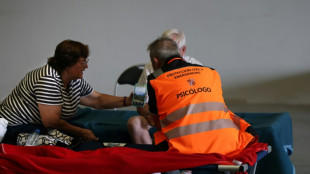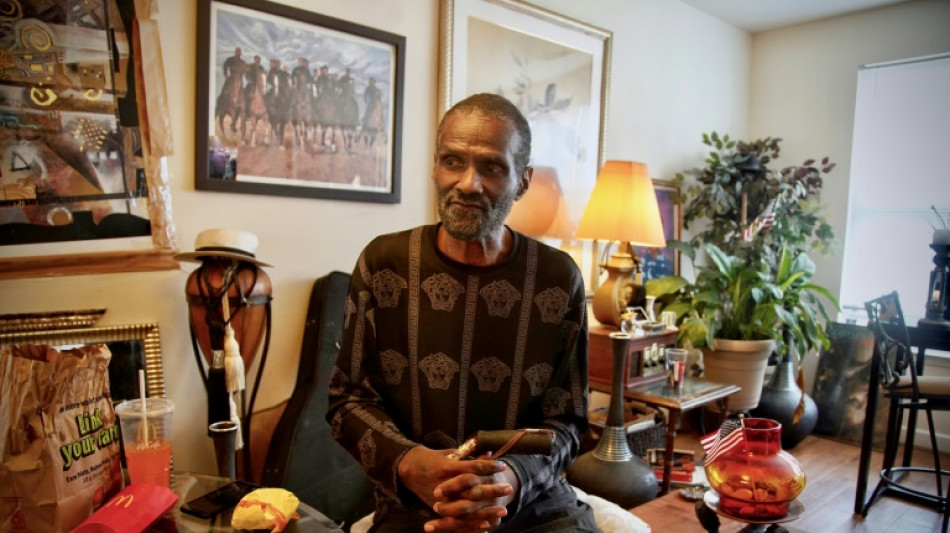
-
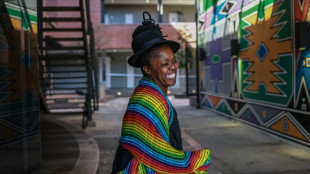 Zanele Muholi, S.African photographer reclaiming identity
Zanele Muholi, S.African photographer reclaiming identity
-
'Restoring dignity': Kenya slum exchange offers water for plastic
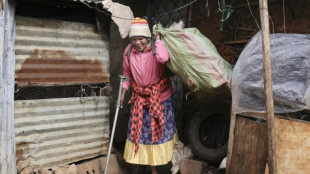
-
 Human ancestor Lucy gets first European showing in Prague
Human ancestor Lucy gets first European showing in Prague
-
China Evergrande Group delisted from Hong Kong stock exchange

-
 A healer and a fighter: The double life of UFC star Shi Ming
A healer and a fighter: The double life of UFC star Shi Ming
-
US Open chaos as Bonzi ousts raging Medvedev

-
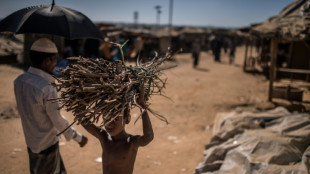 Bleak future for Rohingya, as Bangladesh seeks to tackle crisis
Bleak future for Rohingya, as Bangladesh seeks to tackle crisis
-
Cambodia MPs pass law allowing stripping of citizenship

-
 What to look for at the Venice Film Festival
What to look for at the Venice Film Festival
-
Venice welcomes Julia Roberts, George Clooney to film festival

-
 Djokovic voices physical concerns after US Open win
Djokovic voices physical concerns after US Open win
-
Olympic Council of Asia says Saudi Winter Games 'on schedule'

-
 Asian markets rise on US rate cut hopes
Asian markets rise on US rate cut hopes
-
Vietnam evacuates tens of thousands ahead of Typhoon Kajiki
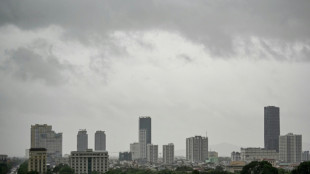
-
 Sabalenka into US Open second round, Djokovic off the mark
Sabalenka into US Open second round, Djokovic off the mark
-
Australian mushroom meal survivor says 'half alive' after wife's killing
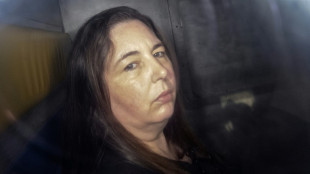
-
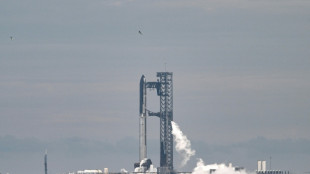 SpaceX calls off Starship megarocket launch in latest setback
SpaceX calls off Starship megarocket launch in latest setback
-
Djokovic shrugs off blisters to advance at US Open

-
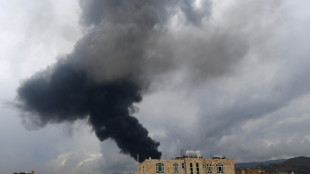 Israeli strikes in Yemen's capital kill six, Huthis say
Israeli strikes in Yemen's capital kill six, Huthis say
-
UN Security Council to vote on embattled Lebanon peacekeepers
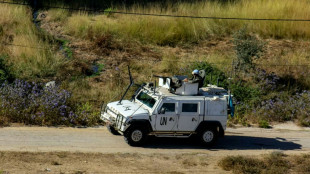
-
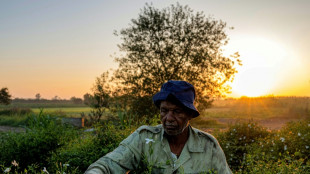 Egyptian farmers behind world's perfumes face climate fight alone
Egyptian farmers behind world's perfumes face climate fight alone
-
'Life-long dream': Oasis kicks off North American tour in Toronto

-
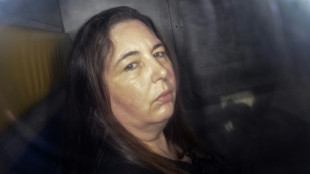 Australia's mushroom murderer faces victims' family in court
Australia's mushroom murderer faces victims' family in court
-
'Over the moon': Filipino Eala bags historic first at US Open

-
 Fleetwood triumphs at Tour Championship for elusive first PGA Tour title
Fleetwood triumphs at Tour Championship for elusive first PGA Tour title
-
Mbappe fires Madrid to victory at Real Oviedo

-
 Giroud strikes late to lift Lille past Monaco, Rennes implode early at Lorient
Giroud strikes late to lift Lille past Monaco, Rennes implode early at Lorient
-
Israeli bulldozers uproot hundreds of trees in West Bank village
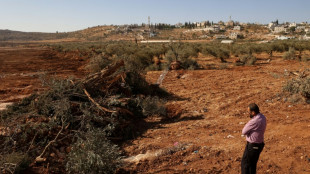
-
 David strikes on Serie A debut as Juve ease past Parma
David strikes on Serie A debut as Juve ease past Parma
-
Sabalenka into US Open second round as Fritz, Shelton advance

-
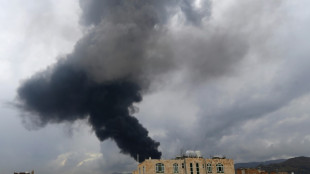 Israeli strikes in Yemen's capital kill four, Huthis say
Israeli strikes in Yemen's capital kill four, Huthis say
-
England's Botterman aiming to be world's 'best loosehead prop'

-
 Kneecap defy critics with 'Free Palestine' chant at Paris gig
Kneecap defy critics with 'Free Palestine' chant at Paris gig
-
New Zealand start Women's Rugby World Cup defence by downing battling Spain

-
 Winless Man Utd need to 'grow up', says Amorim
Winless Man Utd need to 'grow up', says Amorim
-
Shelton romps into US Open second round

-
 Kneecap defy objectors with 'Free Palestine' chant at Paris gig
Kneecap defy objectors with 'Free Palestine' chant at Paris gig
-
US envoy criticises France's lack of action over antisemitism
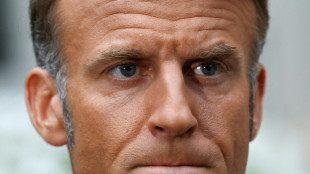
-
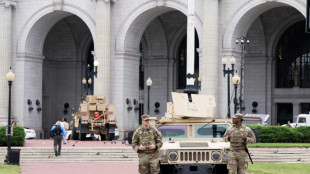 Trump clashes with Democrats as he expands National Guard plans
Trump clashes with Democrats as he expands National Guard plans
-
Raducanu cruises to first US Open win since 2021 triumph

-
 Man Utd still winless after Fulham draw, Everton win to open new stadium
Man Utd still winless after Fulham draw, Everton win to open new stadium
-
Hamburg draws blank on Bundesliga return

-
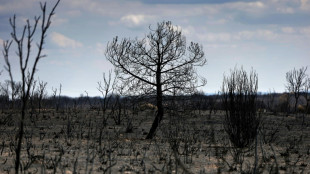 Spain heatwave was 'most intense on record'
Spain heatwave was 'most intense on record'
-
Chaotic Rennes set Ligue 1 red card record and lose 4-0 at Lorient

-
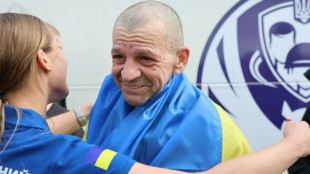 Russia and Ukraine exchange POWs, civilians
Russia and Ukraine exchange POWs, civilians
-
Moyes sees big step forward after Everton win stadium opener

-
 Vingegaard wins on Vuelta mountain to take overall lead
Vingegaard wins on Vuelta mountain to take overall lead
-
Vingegaard wins on Vuelta mountain

-
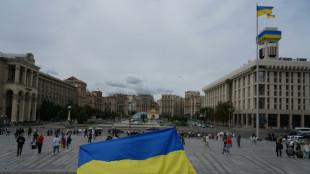 Zelensky calls for Putin talks as peace efforts stall
Zelensky calls for Putin talks as peace efforts stall
-
Everton beat Brighton in new stadium opener


Black Americans bear the brunt of fentanyl 'epidemic' in Washington
Lorando Duncan wears long-sleeved shirts because his arms bear scars he doesn't like to show: those of the drugs he has been injecting into his veins for decades.
Born in the US capital Washington 65 years ago, the slender African American has been using heroin almost all his adult life.
But the advent of fentanyl, an ultra-powerful and addictive synthetic opioid, changed everything.
"Fentanyl killed a lot of my friends," he tells AFP beneath a picture of America's first Black vice president, Kamala Harris, that he has hung in his apartment in Anacostia, one of the poorest neighborhoods in the city.
"Almost every two weeks, I hear about somebody overdosing on fentanyl."
He fears he will be next. "I need to stop... because eventually I'm going to kill myself. And I know it."
Fentanyl -- sold in powder form and cheap to manufacture, so often used as an additive in other drugs such as heroin -- began flooding the market in 2014.
In 2021, 426 people died of opioid overdoses in Washington -- five times as many as in 2014. Of them, 95 percent were fentanyl-related, and 85 percent were Black people. Like Lorando, the majority were between 50 and 69 years old.
Heroin users have been at the forefront of this "poisoning" of supply, as experts call it.
"One day I bought some drug from a guy I know, but I didn't know it was fentanyl," says Lorando, a former prisoner now living on disability benefits.
He passed out, he says, falling on his hip. Now he walks with a cane.
"When I fell, it was day, and when I woke up, it was nighttime. God woke me up this day," he says.
But now he takes fentanyl up to three times a day to feel "normal" and avoid the illness and nausea of withdrawal.
"Now they use fentanyl to cut heroin. So you basically gonna get fentanyl in everything you buy. Everybody uses fentanyl to cut the dope. Make it potent," he says.
The problem, he adds, is that users never know what they are going to get. "You're playing Russian roulette."
- Building trust -
In Washington, long dubbed "Chocolate City" because of its large African American population, Black people were already dying from overdoses at twice the rate of white people in 2010, according to one study.
By 2019, it was 10 times more. For both periods, this disparity was higher than in any state in the country. Experts say one reason is because of how much more vulnerable Black people are -- lower income, less likely to own a home, less likely to have access to resources that can keep them stable and supported.
A few grassroots organizations are doing their best to combat the ravages of the drugs.
Tyrone Pinkney has been working for one of them, the Family and Medical Counseling Service, for 10 years. The 33-year-old travels around the city, especially what he describes as "the crime areas," in a recreational vehicle.
On the RV's floor is a box containing dirty syringes, collected from visitors who are then given clean ones.
And on the seats are cartons of Narcan, the brand name of naloxone, an antidote capable of blocking the effect of opioids -- and thus saving a person in the process of overdosing.
With a tablet in hand, Pinkney questions the few dozen people who turn up each day, checking for example whether they have been tested for the AIDS virus.
"It's not going to keep them from doing what they're doing. But it'll keep them safe," he explains.
Little by little, bonds of trust are created. On his phone, he scrolls through the names of dozens of "clients," as he calls them, who can call him in case of need.
- 'Perfect storm' -
The association helped more than 2,500 people in 2021, and distributed more than 200,000 syringes, according to regional coordinator Mark Robinson.
"It's an emergency. It's endemic," he tells AFP.
"It's an opioid epidemic, layered beneath a (Covid-19) pandemic, layered beneath a health emergency that was already pre-existing amongst Black and brown people," he continues, listing the ways in which Washington's residents are made vulnerable.
"You have multiple epidemics upgrading simultaneously, it's like a perfect storm. And we're right in the midst of it."
For many, the steps needed to access treatment, such as opioid substitutes methadone or buprenorphine, remain too complex -- making it often easier to get drugs than help.
"We've really worked hard on access," Barbara Bazron, who heads Washington's department of behavioral health, tells AFP.
For example, users no longer need to go through a dispatch center to receive prescriptions -- 70 approved entities can directly receive new patients, she explained.
More than 5,000 people are currently enrolled in these care programs.
The city has also prioritized the free distribution of naloxone, giving away 56,000 kits in 2021, and tests to detect whether drugs contain fentanyl.
City Hall is also "gathering information" on safe injection sites, such as those recently set up in New York, says Bazron, who admits she is willing to look at any option.
"Nothing is off the table," she says.
J.Horn--BTB

